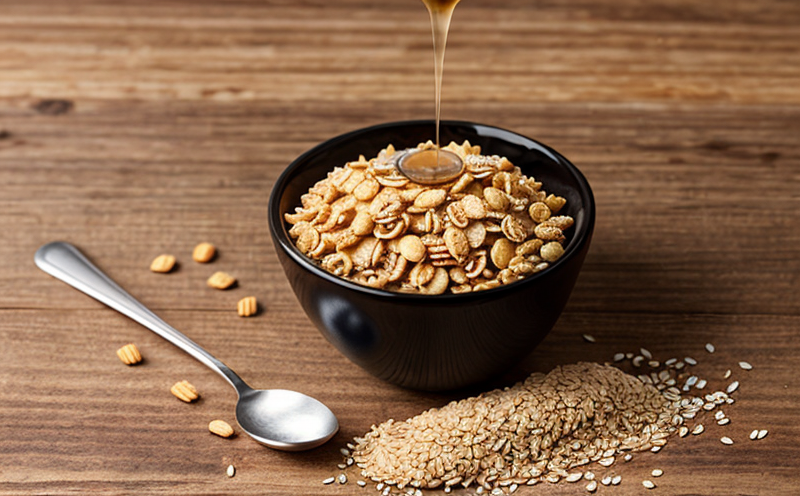Uniformity of Dosage Units Content Test
The Uniformity of Dosage Units Content (UDUC) test is a critical procedure in the food and feed industry, ensuring that each unit dose within a batch or product lot contains consistent amounts of essential nutrients. This test is particularly important for products like cereals, grains, and other processed foods where uniformity directly impacts consumer satisfaction and compliance with regulatory standards.
For instance, consider a breakfast cereal product aimed at providing precise vitamin dosages. If the dosage units are not uniformly consistent, consumers may receive varying levels of nutrients, leading to potential health risks or dissatisfaction. The UDUC test helps manufacturers ensure that every serving meets the expected nutritional profile, thereby maintaining brand integrity and consumer trust.
The test involves measuring the amount of a specific component within each individual dosage unit across multiple samples from the same batch. This ensures that no single unit deviates significantly from the average content. The primary objective is to maintain a standard deviation (SD) within acceptable limits, typically defined by regulatory bodies such as the US Food and Drug Administration (FDA).
In cereal and grain products, this could include testing for vitamins like thiamine (B1), riboflavin (B2), niacin (B3), and folic acid, which are often fortified into these products. The test ensures that each serving provides the intended amount of these essential nutrients, contributing to public health and regulatory compliance.
The methodology for this test is standardized and follows international guidelines such as ISO 6529-1:2017 for food analysis methods. It involves precise sampling techniques to ensure representative samples are taken from each batch. Once collected, the samples undergo rigorous measurement using analytical instruments calibrated to detect minute variations in nutrient content.
The results of the UDUC test are reported as a percentage relative to the declared amount on the label and expressed with standard deviations. This data is crucial for quality managers and compliance officers who rely on it to make informed decisions about product release, batch rejection, or labeling adjustments. For R&D engineers, this test provides valuable insights into ingredient formulation and process optimization.
Uniformity tests are also essential in the feed industry, where consistent nutrient delivery is critical for animal health and growth. In cereal and grain products used as feed ingredients, maintaining uniform dosage ensures that all animals receive adequate nutrition, which can have significant implications for farm productivity and sustainability.
Scope and Methodology
The scope of the UDUC test is broad, encompassing various food and feed products where consistency in dosage units is paramount. This includes but is not limited to cereals, grains, breakfast cereals, pet foods, and infant formulas.
- Testing for vitamins and minerals fortification
- Evaluation of protein content homogeneity
- Assessment of carbohydrate uniformity in processed grains
- Checking the consistency of added preservatives or flavors
The methodology typically involves several key steps:
- Sampling: Representative samples are taken from the batch using a calibrated sampler.
- Preparation: Samples undergo standard preparation techniques to ensure they are in a suitable state for analysis.
- Analytical Measurement: Instruments such as spectrophotometers, chromatographs, or gravimetric analyzers are used to measure the specific component of interest.
- Data Analysis: Statistical methods are applied to calculate the mean and standard deviation of nutrient content across all samples.
Eurolab Advantages
EuroLab stands out in providing UDUC testing services with its advanced technology, experienced personnel, and commitment to accuracy. Our state-of-the-art laboratories are equipped with the latest analytical instruments from leading manufacturers such as Shimadzu, Agilent, and Thermo Fisher Scientific.
Our team of experts is trained to perform these tests according to international standards like ISO 6529-1:2017. We ensure that all samples are handled with care, minimizing the risk of contamination or degradation during preparation and analysis.
The turnaround time for UDUC tests at EuroLab is typically within a week from receipt of the sample, allowing clients to receive timely results. This quick turnaround supports efficient quality control processes in manufacturing environments.
Our clients benefit from our comprehensive reporting services, which include detailed documentation and recommendations based on test findings. This enables them to make informed decisions about product formulation, labeling accuracy, and compliance with regulatory requirements.





